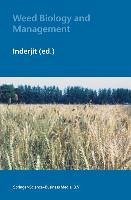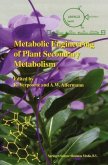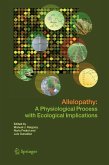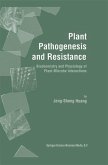Dieser Download kann aus rechtlichen Gründen nur mit Rechnungsadresse in A, B, BG, CY, CZ, D, DK, EW, E, FIN, F, GR, HR, H, IRL, I, LT, L, LR, M, NL, PL, P, R, S, SLO, SK ausgeliefert werden.
"Weeds have long been a concern of agriculturalists, and they continue to challenge weed scientists and farmers. ... In 25 chapters, this book deals with such diverse topics as the evaluation of allelopathy, enhancing allelopathy through crop improvement, the beneficial effects of weeds under selected conditions, unique approaches to the study of host-parasite relationships within parasitic weeds, and the examination of 'period thresholds' as opposed to 'zero tolerance' of weeds. ... Summing Up: Recommended. Upper-level undergraduates and above; general readers." (R. Frederiksen, CHOICE, Vol. 42 (5), 2005)









